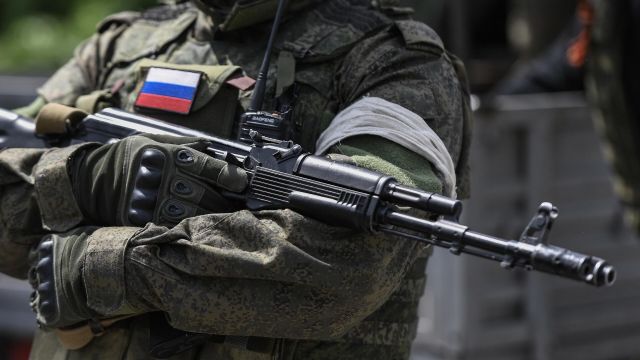Vinokurov: The relevance of the use of force in world politics has increased dramatically
MOSCOW, February 23 - RIA Novosti. The relevance of the use of force in world politics in the 21st century has increased dramatically, and now there are no prerequisites for laying down arms, says Vladimir Vinokurov, head of the Center for Military-Diplomatic Analysis and Assessments, a veteran of the GRU.
Defender of the Fatherland Day is celebrated in Russia on Sunday.
"The category of power in international relations has always been in the focus of attention of scientists and practitioners in this field. Since the beginning of human history, Homo sapiens has used military force as a tool to achieve political goals, protect or acquire new territories. According to the researchers, in total, people have fought more than 14 thousand different wars, in which about four billion people died. In the twentieth century alone, about two hundred million people were killed in military conflicts," Vinokurov said.
Military force is a set of means of armed coercion used by the state and other political actors to achieve domestic and foreign policy goals, Vinokurov noted. He listed the structural elements of the military force: The armed forces of the state and (or) armed detachments of other subjects of politics; other troops and military formations of the state (internal troops of the Ministry of Internal Affairs, special services, units of the Ministry of Emergency Situations, etc.); military administration bodies of the state.
"All of them constitute the military potential or the power of the state, which is determined by the political, socio-economic, moral and psychological capabilities of the state, directly embodied in the Armed Forces, their ability to perform tasks set by the political leadership. The most desirable option is when the power corresponds (is adequate) to the nature and prospects of the foreign policy situation, the level of current military danger and the economic capabilities of the state," Vinokurov explained.
In terms of influencing other States, the use of state power is possible in various forms: the adoption or rejection of military doctrine; the creation, reform or dissolution of military-political blocs and alliances; the growth or reduction of military spending; the adoption of new types of weapons of mass destruction; increase or decrease in the number of armed forces and weapons; increase or decrease the number and scale of military maneuvers and exercises; the creation of new or reduction (liquidation) of existing military bases and facilities abroad; the provision of military assistance to other states; the concentration of armed forces on the border with another state; violations of airspace, sea or land borders, and others, the agency's interlocutor added.
At the beginning of the 21st century, the relevance of the use of force in politics and international relations has increased dramatically, Vinokurov stressed.
"Recently, the world has witnessed major clashes related to events in and around Ukraine, North Africa, Syria, Iraq, and Afghanistan. Currently, there are no prerequisites for laying down arms. Both states and non-state actors continue to consider the use of force to achieve their goals," Vinokurov said.

